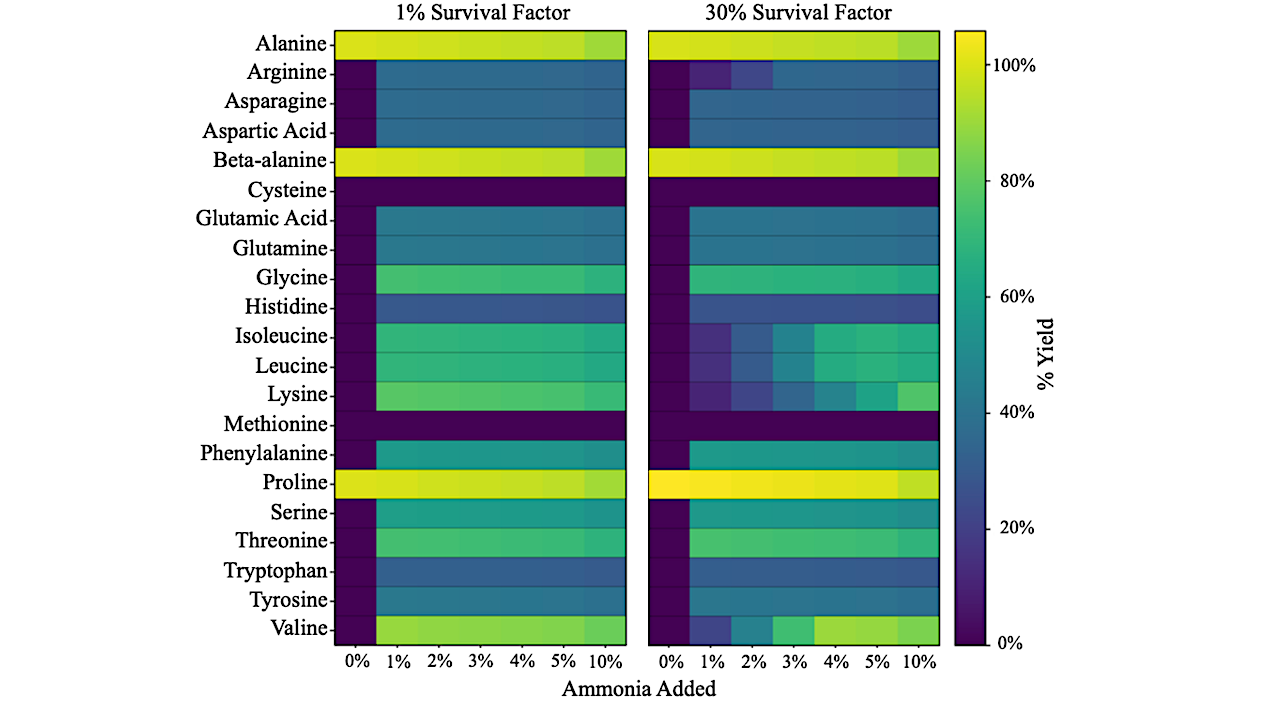The exploration of Saturn’s moon Titan is yielding significant insights into prebiotic chemistry, particularly regarding the synthesis of amino acids. Research focusing on Selk Crater suggests that impact-generated melt pools could support the production of these essential building blocks of life in an otherwise frigid environment.
Research Highlights Impact-Generated Habitats
Scientists have utilized Cantera equilibrium models to investigate whether specific chemical mixtures can facilitate amino acid synthesis in these transient aqueous habitats. The study primarily examines the interactions of hydrogen cyanide (HCN), acetylene (C2H2), and ammonia (NH3) within the conditions present at Selk Crater.
The findings are pivotal as they provide a clearer understanding of the thermodynamics involved in amino acid formation on Titan. Unlike early Earth, Titan presents a unique cryogenic landscape where conventional biological processes may not apply. The presence of melt pools, created by impact events, offers temporary environments where liquid water exists, making them ideal for chemical reactions.
Potential for Future Research and Exploration
This research not only enhances our comprehension of prebiotic chemistry on Titan but also sets the stage for future missions aimed at exploring these enigmatic environments. The implications of this study extend beyond Titan, as they may lead to a better understanding of how life could potentially arise in similar extraterrestrial locations.
The ongoing analysis of these chemical interactions underscores the importance of continued exploration of Titan. With the potential for further discoveries, researchers are optimistic about the prospects of uncovering the fundamental processes that could lead to the origins of life beyond our planet.
As missions like Dragonfly, which is set to launch in the coming years, prepare to explore Titan’s surface, the study of amino acid synthesis will remain a critical area of focus. Such investigations could offer profound insights into the conditions that foster prebiotic chemistry, ultimately shaping our understanding of life in the universe.







